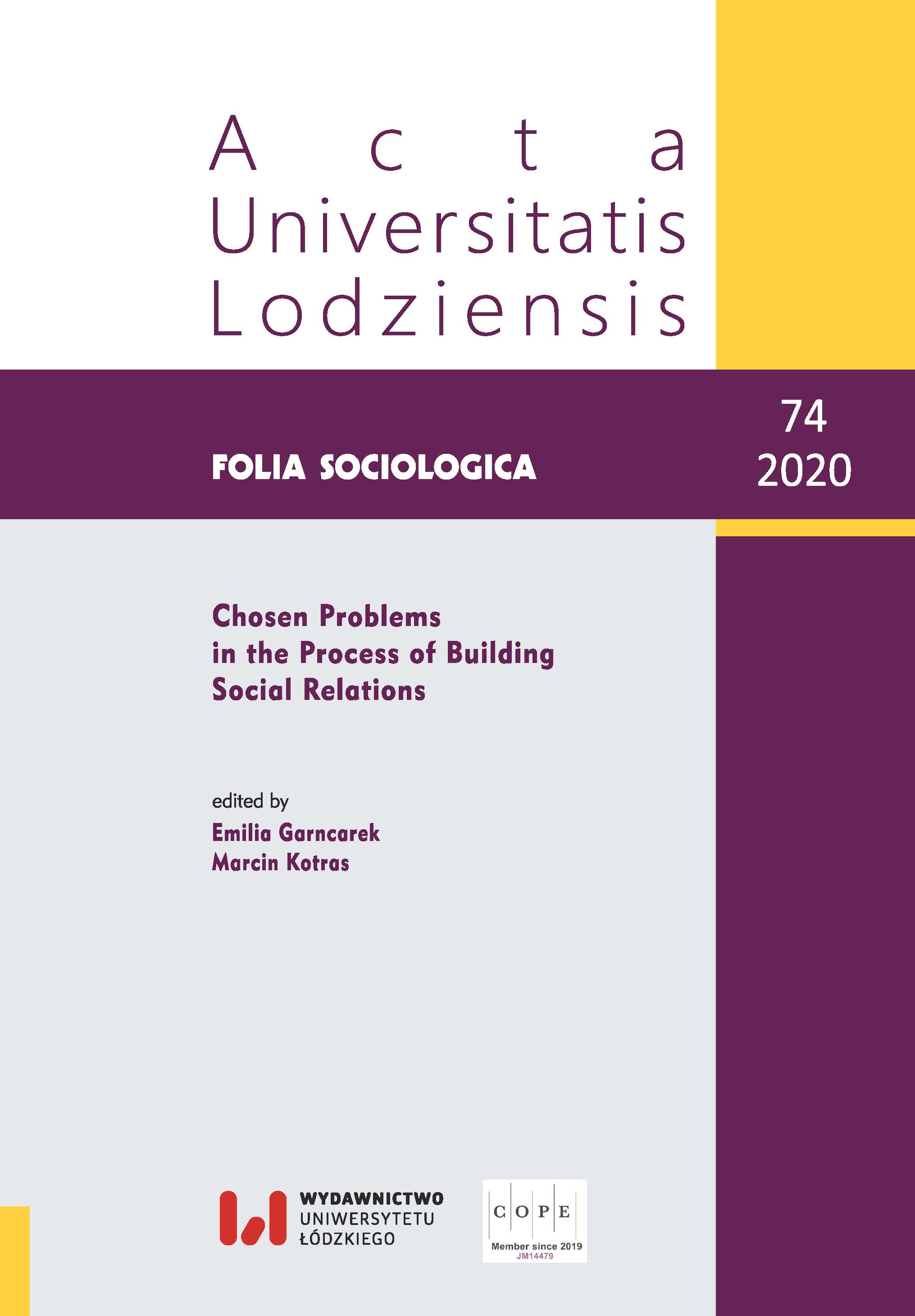People with excess body weight and weight discrimination in the labour market
DOI:
https://doi.org/10.18778/0208-600X.74.02Keywords:
overweight, obesity, excess body weight, stigmatisation, discrimination, stereotypes, labour marketAbstract
This article addresses issues associated with the perception of obesity and being overweight in the labour market, and the issue of weight discrimination. Excess body weight has become a very serious social problem. The increase in rates of obesity and being overweight is a serious problem both for individuals and social policies in advanced societies. In some countries, over 50% of the population have excess body weight. The literature to date indicates that people struggling with being overweight and obesity are discriminated at work. Research shows that these individuals are believed to have lower leadership potential, a lower IQ and lower effectiveness compared to individuals of normal weight. For this reason, people with excess body weight are subjected to stigmatisation and discrimination, have limited chances of occupying managerial positions, and earn lower incomes. The article also shows whether and how overweight and obese people can defend their rights.
References
Averett S., Korenman S. (1996), The economic reality of the beauty myth, “The Journal of Human Resources”, vol. 31(2), pp. 304–330.
Google Scholar
DOI: https://doi.org/10.2307/146065
Carr D., Friedman M.A. (2005), Is obesity stigmatizing? Body weight, perceived discrimination, and psychological well-being in the United States, “Journal of Health and Social Behavior”, vol. 46(3), pp. 244–259.
Google Scholar
DOI: https://doi.org/10.1177/002214650504600303
Czykwin E. (2007), Stygmat społeczny, Wydawnictwo Naukowe PWN, Warszawa.
Google Scholar
Featherstone M. (2001), The body in consumer culture, [in:] M. Featherstone, M. Hepworth, B.S. Turner (eds.), The Body. Social Process and Cultural Theory, Sage Publications, London.
Google Scholar
Giddens A. (2010), Nowoczesność i tożsamość, transl. A. Szulżycka, Wydawnictwo Naukowe PWN, Warszawa.
Google Scholar
Giel K.E., Zipfel S., Alizadeh M., Schäffeler N., Zahn C., Wessel D., Hesse F.W., Thiel S., Thiel A. (2012), Stigmatization of obese individuals by human resource professionals: an experimental study, “BMC Public Health”, vol. 12(1), pp. 1–9.
Google Scholar
DOI: https://doi.org/10.1186/1471-2458-12-525
Główny Urząd Statystyczny (GUS) (2006), Stan zdrowia ludności Polski w 2004 roku, Główny Urząd Statystyczny – Departament Statystyki Społecznej, Warszawa.
Google Scholar
Główny Urząd Statystyczny (GUS) (2016), Stan zdrowia ludności Polski w 2014 roku, Główny Urząd Statystyczny – Departament Badań Społecznych i Warunków Życia, Warszawa.
Google Scholar
Goffman E. (2005), Piętno. Rozważania o zranionej tożsamości, transl. J. Tokarska-Bakir, A. Dzierżyńska, Gdańskie Wydawnictwo Psychologiczne, Gdańsk.
Google Scholar
Hyży E. (2012), Kobieta, ciało, tożsamość, Universitas, Kraków.
Google Scholar
Kluczyńska U. (2009), Metamorfozy tożsamości mężczyzn w kulturze współczesnej, Wydawnictwo Adam Marszałek, Toruń.
Google Scholar
Krukowska M. (2015), Coraz grubsi Polacy to ogromny problem dla gospodarki, https://www.forbes.pl/csr/koszty-otylosci-w-polsce-dla-gospodarki/qgdsthf (accessed 1.09.2019).
Google Scholar
OD-WAGA Foundation for People with the Obesity Disease, Dyskryminacja osób chorych na nadwagę i otyłość, http://www.od-waga.org.pl/dyskryminacja.html (accessed: 1.08.2019).
Google Scholar
OD-WAGA Foundation for People with the Obesity Disease, Kim jest Społeczny Rzecznik Praw Osób Chorych na Otyłość, http://od-waga.org.pl/rzecznik.html (accessed: 1.08.2019).
Google Scholar
Olechnicki K., Załęcki P. (eds.) (2000), Słownik socjologiczny, Graffiti BC, Toruń.
Google Scholar
Puhl R., Brownell K.D. (2001), Bias, discrimination, and obesity, “Obesity Research”, vol. 9(12), pp. 788–805.
Google Scholar
DOI: https://doi.org/10.1038/oby.2001.108
Shilling C. (2010), Socjologia ciała, transl. M. Skowrońska, Wydawnictwo Naukowe PWN, Warszawa.
Google Scholar
Urząd Marszałkowski Województwa Łódzkiego (UMWŁ) (2019), Regionalny program zdrowotny dotyczący przeciwdziałania nadwadze i otyłości w województwie łódzkim wśród osób w wieku aktywności zawodowej na lata 2019–2023 – pilotaż “odWAŻYMY ŁÓDZKIE”, https://rpo.lodzkie.pl/images/2019/427-program-odwazymy-lodzkie/odwazymy-lodzkie.pdf (accessed: 1.08.2019).
Google Scholar
World Health Organisation (WHO) (2018a), European Health Report 2018. Health Situation In The European Region, http://www.euro.who.int/en/data-and-evidence/european-health-report/european-health-report-2018 (accessed: 1.08.2019).
Google Scholar
World Health Organisation (WHO) (2018b), Non-communicable diseases. Country profiles 2018, World Health Organisation, https://www.who.int/nmh/publications/ncd-profiles-2018/en/ (accessed: 1.08.2019).
Google Scholar
Downloads
Published
How to Cite
Issue
Section
License

This work is licensed under a Creative Commons Attribution-NonCommercial-NoDerivatives 4.0 International License.










